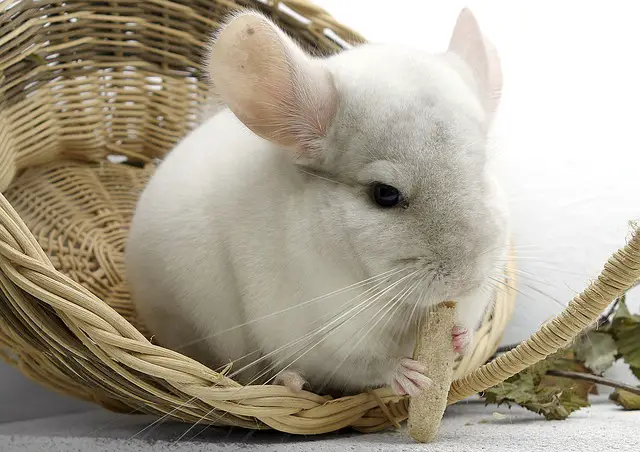Chinchillas are known for their adorable appearance, with their fluffy tails, soft fur, and long whiskers. These small rodents are native to the Andes Mountains and are popular pets due to their playful and curious nature.
However, many chinchilla owners wonder if their pets lose their whiskers and, if so, whether they grow back.
Whiskers, or vibrissae, are specialized hairs chinchillas use to navigate their surroundings and sense danger.
They are located on the cheeks, chin, and above the eyes and are much longer and stiffer than regular fur.
While chinchillas shed their fur regularly, their whiskers are not shed in the same way. In fact, chinchillas rarely lose their whiskers; if they do, it is usually due to injury or illness.
Do Chinchillas Lose Their Whiskers?
Chinchillas are known for their long, soft, and dense fur. However, they are also recognized for their adorable whiskers, which serve as sensory organs. These whiskers can help chinchillas navigate their surroundings, communicate with other chinchillas, and detect predators. But do chinchillas lose their whiskers?
Reasons Why Chinchillas Lose Their Whiskers
Chinchillas can lose their whiskers for various reasons.
One of the most common reasons is due to natural shedding. Like other animals, chinchillas shed their whiskers as part of their natural growth cycle.
However, whisker shedding is not as noticeable, unlike fur shedding, because chinchillas only shed a few whiskers at a time.
Another reason why chinchillas lose their whiskers is due to injuries. Chinchillas can accidentally break or damage their whiskers while playing or exploring their environment.
Occasionally, chinchillas can also get their whiskers caught in their cage or toys, causing them to break or fall out.
How Long Does It Take for Chinchillas to Regrow Their Whiskers?
Chinchillas can regrow their whiskers, but the process can take some time. On average, a chinchilla takes about two to three months to regrow a full-length whisker. However, the regrowth rate can vary depending on the chinchilla’s age, health, and other factors.
It’s essential to note that chinchillas need their whiskers to navigate their environment and communicate with other chinchillas. Therefore, if a chinchilla loses its whiskers due to an injury or other reasons, it’s crucial to provide them with a safe and comfortable environment to prevent further damage.
In conclusion, chinchillas do lose their whiskers, but it’s a natural part of their growth cycle. However, if a chinchilla loses its whiskers due to an injury, it’s essential to provide them with the necessary care and attention to prevent further damage.
The Importance of Chinchilla Whiskers
Chinchillas are known for their adorable and fluffy appearance, but their whiskers are not just for show. These long, stiff hairs protruding from their face are vital to their survival and well-being.
Sensory Functions of Chinchilla Whiskers
Chinchilla whiskers, or vibrissae, are susceptible tactile organs that help these rodents navigate their environment. They are filled with nerve endings that allow chinchillas to detect changes in air currents, temperature, and other physical stimuli.
This sensory information helps chinchillas avoid obstacles, locate food and water sources, and detect predators.
Social Functions of Chinchilla Whiskers
Chinchilla whiskers also play an essential role in social interactions. These rodents are highly social animals that communicate with each other through various body language cues, including the position and movement of their whiskers.
For example, when chinchillas feel threatened or aggressive, they may flare their whiskers out to the sides to make themselves appear larger and more intimidating.
On the other hand, when chinchillas are feeling relaxed and content, they may tuck their whiskers back against their face.
Overall, chinchilla whiskers are crucial to these animals’ anatomy and behavior. Therefore, chinchilla owners need to understand the significance of their pets’ whiskers and provide plenty of opportunities to use them daily.
How to Care for Chinchilla Whiskers
Grooming Chinchilla Whiskers
Chinchilla whiskers are essential for their sensory perception. They use their whiskers to navigate their surroundings and to find food. Therefore, it is necessary to keep their whiskers clean and healthy. Grooming their whiskers can be done weekly or as needed. Here are some tips for grooming chinchilla whiskers:
- Use a soft-bristled brush to comb through their whiskers gently.
- Avoid using water or any other liquid to clean their whiskers.
- Trim any broken or damaged whiskers utilizing a pair of scissors. Be careful not to cut the healthy whiskers.
Preventing Whisker Loss in Chinchillas
Chinchillas can lose their whiskers for various reasons, such as stress, malnutrition, and rough handling. Losing their whiskers can affect their balance and ability to navigate their surroundings. Here are some ways to prevent whisker loss in chinchillas:
- Provide a stress-free environment for your chinchilla.
- Feed them a balanced diet with hay, pellets, and fresh vegetables.
- Handle them gently and avoid pulling or tugging on their whiskers.
- Provide them with enough space to move around and exercise.
In conclusion, taking care of chinchilla whiskers is essential for their health and well-being. Grooming their whiskers and preventing whisker loss can help keep them healthy and happy.




